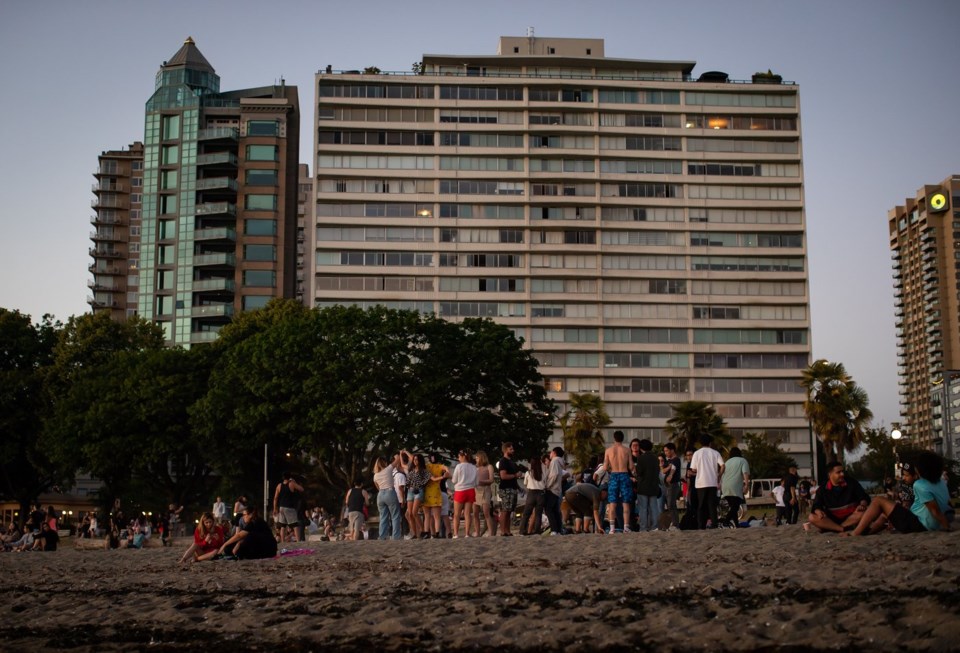VANCOUVER — A researcher who looked into deaths during the eight hottest days of B.C.'s deadly heat dome says that equitably addressing the impacts of climate change would mean placing a larger focus on people living in poverty.
Sarah Henderson was part of a team with the B.C. Centre for Disease Control that compared about 1,500 people who died from a range of causes during the heat dome with similar people who survived, focusing on health conditions and socioeconomic status.
The study, published this week in Environment Research: Health, found the risk factor most strongly associated with dying during those sweltering days in the summer of 2021 was whether that person was receiving income assistance.
Their calculations show there were 2.4 times more people living in poverty who died during the heat dome compared with people who survived.
Henderson, who is the centre's scientific director of environmental health services, said while the study didn't specifically tie cause of death directly to the heat, the numbers show living in poverty was associated with a higher risk of death during that time.
"Really, when we look at ability to adapt to climactic changes, money is an excellent lubricant to be able to take those adaptive measures at a personal, and family, and even community level," she said.
Temperatures soared into the high 40s for several days across much of British Columbia in late June 2021, while overnight heat remained uncharacteristically high.
The study calls the heat dome "one of the deadliest weather events in Canadian history," and said the event was associated with an estimated 740 excess deaths
However, a 2022 panel report released by the province's chief coroner attributed 619 deaths to the heat dome. It said most of those who died were older adults with compromised health due to multiple chronic diseases and they usually lived alone.
The latest research found health conditions most strongly associated with death during the heat dome were schizophrenia, COPD, Parkinson's disease, heart failure, chronic kidney disease, ischemic stroke, and substance use disorder.
Henderson said there are a multitude of reasons why people living in poverty would be at higher risk from extreme heat, and some of the risk that previous research has attributed to health conditions could be influenced by also living in poverty.
"People who live their lives in poverty tend to not have the same degree of health as people who don't. When we're talking about heat, we often talk about those health conditions that put people at risk," she said.
"But it may be possible that some of that risk that we attribute to health conditions is actually due to socioeconomic or social susceptibility factors."
Henderson said help like the B.C. program that offers air conditioners to those in need are the type of supports that will allow those with lower income to stay safe when it's hot outside.
She said she would also support legislation that sets a maximum temperature allowed inside rental units, similar to the rules that are already in place requiring heat in the winter.
"We have shown here that there is risk associated with being low income and probably what that means most is that people were living in overheated environments, and did not have the means to make a safe space at home or to access a safe space elsewhere," she said.
"Everyone's at risk when the indoor temperatures are too high."
Advocates have called for rules to keep B.C. rentals cool and several municipalities are considering bylaws that would restrict the maximum temperature of rental units.
Last year, Vancouver Mayor Ken Sim said the city has nearly finished a study on indoor heat that could lead to changes to its building codes or bylaws.
This report by The Canadian Press was first published July 25, 2024.
Ashley Joannou, The Canadian Press


